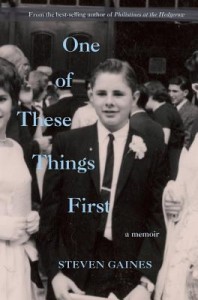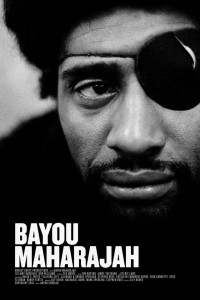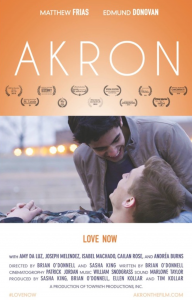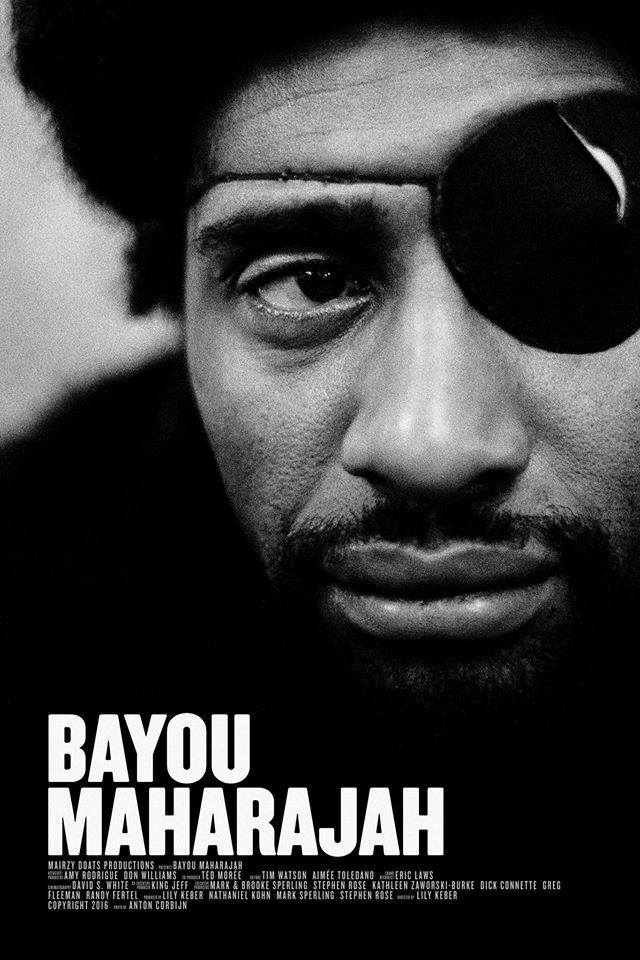 One Of These Things First: A Memoir
One Of These Things First: A Memoir
by Steven Gaines
Delphinium Books. 196 pages, $20.
Steven Gaines, author of books on Halston, the Beatles, and the Hamptons, has written a memoir filled with tenderness, humor, and insight. From the start, we’re drawn into the world of Gaines as a young boy desperately trying to figure out who he is and where he fits in. For most of his young life he lives in hiding and self-loathing, culminating in a suicide attempt at age fifteen. He soon lands at the posh Payne Whitney psychiatric clinic in Manhattan, where he meets up with several interesting fellow inmates, including the theatrical producer Richard Halliday, who becomes something of a mentor. Halliday introduces him to literature, music, and bridge. Gaines also meets Halliday’s wife, Mary Martin. His reading list includes Truman Capote, Carson McCullers, and Harper Lee.
However, the clinic also has a darker side. There are those padded cells and shock treatments. Upon entering, the focus of his treatment had been finding the cause of the suicide attempt. He had for years been showing signs of OCD and reclusive social behavior (as a child he hid in boxes at the back of his grandparents’ bra and girdle shop). His homosexuality is revealed in a therapy session. Given the times, his Freudian analyst begins a course of treatment designed to change his sexuality. His journey to straighten himself out turns into a project that lasts for many years beyond Payne Whitney.
Thirty years later, he visited his former analyst to let him know how he was doing in his life. To his surprise, the analyst apologized for having attempted to “cure” him—a remarkable “conversion” experience for the analyst! In times such as these, Gaines’ memoir reminds us that we cannot let this happen again.
Irene Javors
 Bayou Maharajah: The Life and Music of New Orleans Piano Legend James Booker
Bayou Maharajah: The Life and Music of New Orleans Piano Legend James Booker
Directed by Lily Keber
Cadiz Recording Company
Described by Rock & Roll Hall of Famer Dr. John as “the best black, gay, one-eyed junkie piano genius New Orleans has ever produced,” James Booker (1939–1983) called himself the “Black Liberace.” He was born and died at New Orleans’ Charity Hospital and was known for his exciting blend of musical styles, ranging from classical to gospel to blues, jazz, and boogie-woogie. In Bayou Maharajah, Booker states that he thought he was a female until age five, and the first woman he wanted to marry was Tallulah Bankhead. The documentary features a number of talking heads, including his one-time piano student Harry Connick Jr., but very little is said about Booker’s sexual orientation.
Heavily into drugs for much of his life, he always wanted to be high on something, whether legal or illegal, and at one point he served time in the infamous Louisiana State Penitentary. He’d lost an eye early in his life—various gruesome stories explained it—and covered it with eyepatches bedecked with glittering stars. (Occasionally he used a glass eye.) He made his first recording as a teen and was a sideman in major acts, including Little Richard and B. B. King, but usually didn’t have a manager, playing mostly in New Orleans bars. A few years before he died, at age 43, he toured Europe, where he was greeted by adulating crowds. This film doesn’t stint on the music—many songs are played in their entirety—but would have benefited from interviews with people who knew more about James Booker the man, including his gay relationships.
Martha E. Stone
 Jonathan
Jonathan
Directed by Piotr J. Lewandowski
U.S. Distribution by Wolfe Video
This isn’t the first movie to examine the family drama when it’s a parent who’s gay and the kid(s) who are straight, but it does so in a way that’s remarkably authentic and gritty—literally so, as it’s set on a dairy farm in the German countryside. In this case, the gay father is a crusty old farmer who spends his dying days bashing down a stone wall with a sledgehammer while slowly succumbing to melanoma. In what seems to be a cruel inside joke, the straight son is an actor of epic good looks, yet he struggles with deeply hostile feelings toward his gay father. These feelings, it turns out, are inextricably but mysteriously linked to his mother’s untimely demise.
The farm is inhabited by a cast of highly individual characters, each with his or her own crosses to bear. And now the imminent demise of the titular head of the family has brought these simmering feelings to the surface—and has also brought the old man’s long-lost lover back to the farm, where he seems to have left some unfinished business. The film is named for the straight son, and justly so, as Jonathan struggles not only with his father’s sexuality but also his own raging hormones, which give rise to several quite watchable, albeit heterosexual, love scenes. But the looming question returns: will Jonathan reconcile with his father as the latter’s final days tick away?
Richard Schneider Jr.
 Akron
Akron
Directed by Sasha King and Brian O’Donnell
U.S. Distribution by Wolfe Video
The inverse of the above scenario would be a gay young person whose parents accept his sexuality unconditionally, which is what we find in Akron. Benny’s Latino parents couldn’t be happier when their gay son finds a suitable young man to date, the ultra-WASPy Christopher. Much of the action centers on the guys’ courtship—the ethnic difference makes for lighthearted misunderstandings, but no real drama—until… An event from the past suddenly disrupts this budding romance, an incident involving their mothers that occurred fifteen years ago when the boys were around six—just old enough to remember, however dimly, “that day.” The plot unfolds in an interesting way as Benny and Christopher come to terms with this turn of events. Still, one wonders if the main plot element—the chance reconnection of two families joined by tragedy—could not have been carried off just as well by a straight couple, who would presumably have confronted the same emotional scars. This is not a criticism, and perhaps it’s a sign of progress that the sexual orientation of the young couple is irrelevant to the story. That said, this strategy clearly marks Akron as a “gay movie” that will probably be marketed exclusively to gay viewers. And that, too, can be taken as a sign of the times.
Richard Schneider Jr.






